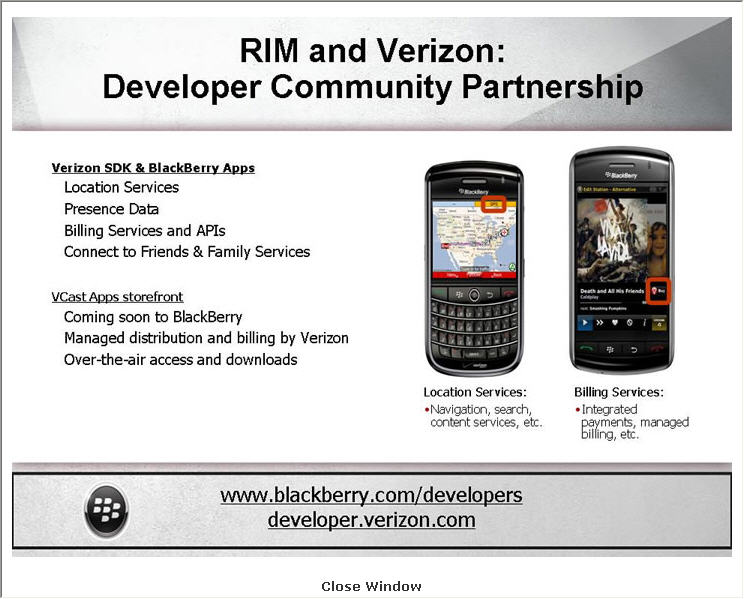Verizon Wireless to developers: 'Our success is tied to you'

Verizon Wireless CEO Lowell McAdam pitched application developers on the company's strategy as it moves toward its 4G long-term evolution (LTE) network. Verizon Wireless, which put some meat on its developer plans, also said that its app marketplace will complement existing stores from platform partners. The goal: "Provide more applications than anyone else."
The developer powwow, Verizon Wireless' first, was designed to position the carrier as more friendly to partners. McAdam said that Verizon Wireless will open up its LTE network and encouraged developers to begin working with the carrier so they'll be ready this time next year when the 4G network launches. Verizon Wireless was also trying to add some detail to its plans to launch its Vcast application store.
Along with the developer conference there were a bevy of announcements:
- Verizon Wireless and Qualcomm forged a joint venture to enable machine-to-machine wireless communications. This effort is the latest move by Verizon Wireless to target key verticals such as healthcare, manufacturing, distribution and consumer products.
- RIM and Verizon Wireless will line up APIs to create location aware apps and align billing so Blackberry applications can easily be added to the Vcast application store with integrated billing. Verizon Wireless APIs will be available in the Blackberry SDK.
"It's a new day. Our success is tied to you," said McAdam. Verizon Wireless' goal is to "provide more applications than anyone else bar none," added McAdam.
The message from Verizon Wireless execs such as McAdam and marketing chief John Stratton seemed to be aimed at doubters. To wit:
- "I'd like to welcome even those of you that said this day will never come and it's a sham," said McAdam.
- Stratton said that Verizon Wireless' app store isn't designed to compete with its platform partners like Research in Motion and Android. "Verizon doesn't intend to create its own SDK. Our desire is to complement those environments and provide resources and tools that make it easier to consume those applications you create," said Stratton. Verizon said that it is working closely with RIM to connect their respective app markets.
- Open APIs for billing systems, location data and presence will be "great enablers" for application markets, said Stratton. Regarding billing, Stratton said the goal will be to create a one-click process to buy an application on the Verizon network.
- The developer split for the Verizon Wireless app store will be 70 percent without additional fees, minimums and other items that nibble into the revenue share.
McAdam said that Verizon Wireless was looking to move "beyond the walled garden" so it could take advantage of its core strength: The network. McAdam provided a not-so-subtle jab at AT&T (at least a weekly occurrence):
Some suggest wireless providers like Verizon Wireless will be irrelevant. I embrace change. You want apps that work when you want them. You don't want a device that shines bright and fails for one good reason: Your network isn't up to the task.
RIM co-CEO Jim Balsillie noted that the Verizon Wireless developer moves are "a huge strategic shift." Balsillie noted that RIM is seeing a lot of app activity coming from Verizon's wireless network.
Balsillie also said that RIM's support of Verizon's Vcast store didn't diminish support for BlackBerry App World. "What we want is a channel," he said.
Judging from the Verizon Wireless presentation the carrier is pitching the following perks to developers:
- Aggregating apps at the carrier takes care of billing arrangement since those systems are already in place.
- Verizon Wireless will simplify contracts with developers.
- Developers can make more money.
- Consumer presence and data can be shared for marketing and app development. Selling a mobile game on FiOS TV.
The larger question is whether developers will buy into Verizon Wireless' shift. Given the sheer size of Verizon Wireless I'd assume they'd play ball.
Also see:
